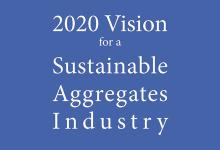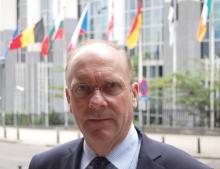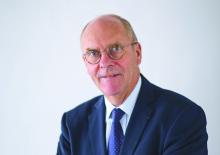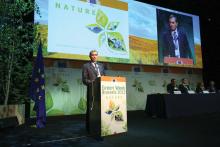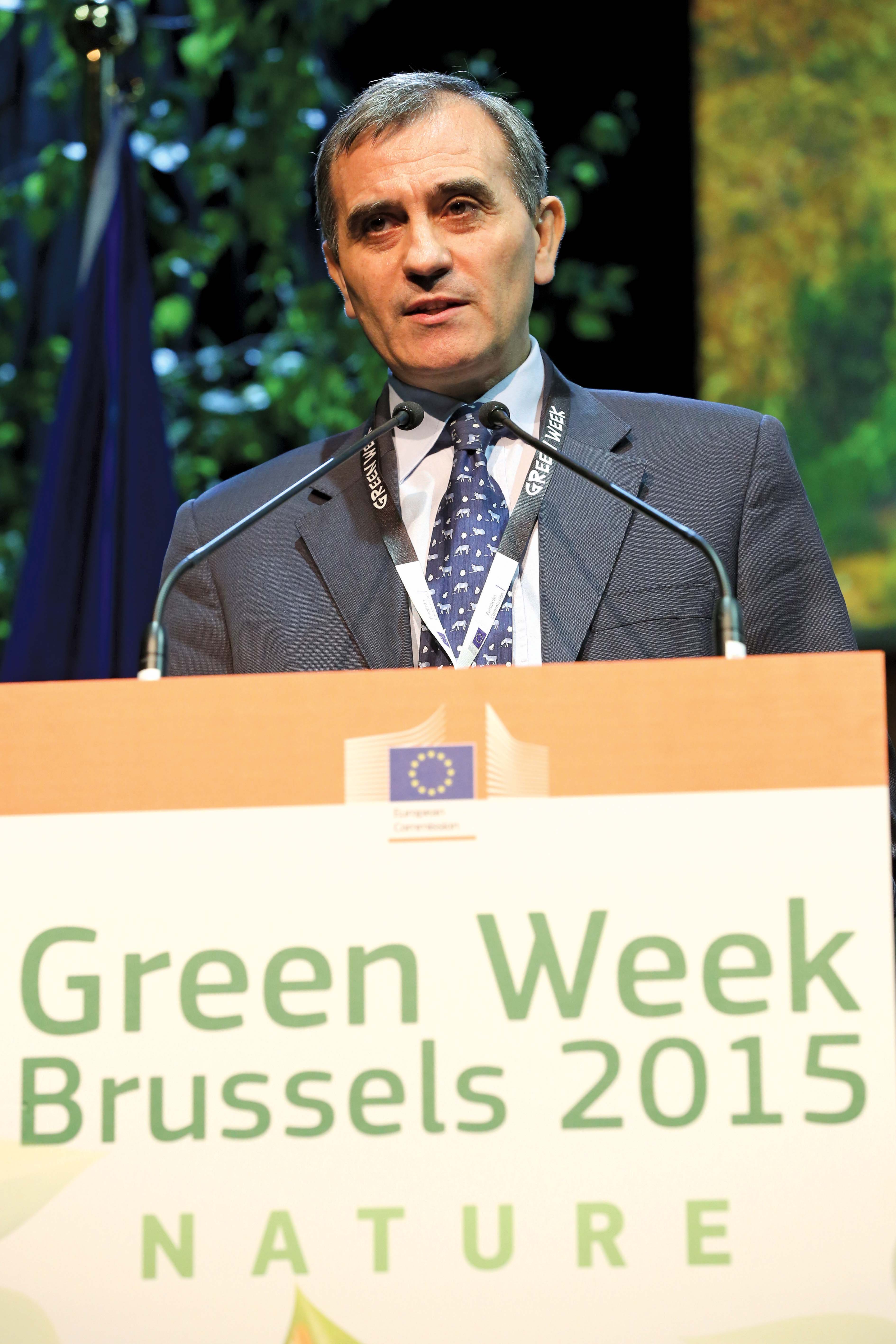
The
The recent UEPG Delegates Assembly elected Jesús Ortiz to take over for the period 2015-2018 from Arnaud Colson, sustainable development and environment director at
The 54-year-old will be ably supported by vice-presidents Thilo Juchem (MIRO, Germany) and Nigel Jackson (
Jesús Ortiz has been general manager for
With a Master’s Degree in Management from Sup De Co Clermont-Ferrand and an MBA from INSEAD, both in France, Jesús Ortiz worked between 1983 and 1989 as Diplomatic Commercial Attaché (French Ministry for Economy and Finance) at different African and Turkish French Embassies and at Lorraine Prefecture, France, Direction for Foreign Trade.
In 1989 he joined
Between 2003 and 2007 he served as managing director at Italcementi Group activities in Greece and Bulgaria, and has been a Board Member of different trade associations of the extractive industry’s sectors in Greece, Bulgaria and Spain.
Since 2008 he has been Board Member and treasurer of
Asked how he sees the UPEG at present, Ortiz says that UEPG is a highly efficient network of national associations and aggregates producing companies in 30 countries.
“Its real strength lies in the collective expertise, its excellent contacts to local, regional, national and European decision-makers and a dynamic Brussels, Belgium-based team.
“Twenty eight years after its foundation, UEPG is now a professional and fully recognised European stakeholder, representing the largest sector among the non-energy extractive industries and represented in high-level bodies of EU Institutions,” he says.
“A large stake of what aggregates producers have to comply with at regional or national level originates from Brussels: Natura 2000, Construction Products Directive, Environmental Impact Assessments to state a few examples. This is why our members need to be alerted and involved in European Initiatives at an early stage to ensure EU legislation achieves its objectives as foreseen by legislators and, at the same time, does not hinder economic development but promotes and facilitates sustainable practices.”
He says that UEPG has a permanent team in Brussels, and experts across Europe, gathering in the four permanent Committees as well as in the necessary Task Forces and Working Groups.
“The Brussels team speaks five languages; goes out to members; coordinates the network of experts; designs and runs lobby campaigns and organises major events to name only a few of their activities.
“The experts in the Working Groups and Task Forces are dealing with precise and detailed important initiatives and technical details. They issue recommendations to the four committees: the Economic, Environment, Health & Safety and Technical Committees.
“From that point, we discuss their expert recommendations in the Board adding a political aspect before some of the broader and long-term questions are approved by the Delegates Assembly. Initiatives which need an urgent treat can undergo a fast-track decision by the UEPG Board. This allows UEPG to act and react on short notice if necessary.”
Ortiz and the UEPG already has a list of priorities for the next three years.
“UEPG has recently published its Vision 2020 listing ten key ambitions for the European Aggregates Industry, which we can only achieve with the active support of EU policy-makers. (See panel)
“Over the next three years of my Presidency, we will contribute to the ‘Fitness Check’ of the Natura 2000 Directives. [Natura 2000 is the centrepiece of EU nature and biodiversity policy. It is an EU-wide network of nature protection areas established under the 1992 Habitats Directive. The aim of the network is to assure the long-term survival of Europe’s most valuable and threatened species and habitats].
“This goes beyond the usual question of whether companies are facing difficulties with European nature protection law. We need to identify where exactly things are going right or wrong and where this is caused by wrong implementation or directly by the given text of the Natura 2000 Directives. There is a real and unique chance to improve sustainable access to resources which takes into account nature protection.
“By the end of 2015, the
“We have published a graph in our Vision 2020 explaining why a circular economy will never be a hermetically sealed loop but an economic model which would still need 80% virgin aggregates supply if all available construction and demolition waste was to be recycled.
“This leads us to another priority often seen as the key tool to trigger more recycling: resources taxation. Although not a competence of the European Commission, the current debate in DG Environment and the European Parliament might be used by EU Member States to introduce additional fiscal burden on industry without increasing recycling or resource efficiency.
“Some studies admit that the main objective of resource taxation is not to increase resource efficiency but to raise tax revenues. We have to ensure that policymakers do understand the consequences of policy tools and explain these to citizens.”
Asked if he will be seeking to change anything about the way UEPG operates during his tenure, he says: “UEPG is working highly efficiently, but there is always a potential to improve and the need to regularly question procedures. With the limited resources we have available, UEPG needs to strengthen membership and focus on concentrating its efforts in working out deeper and even more efficiently its priorities.
“Together with UEPG Board Members and the UEPG team, I will undertake to review the cooperation with other industry sectors, in particular with the non-energy extractive industries (NEEI),” says Ortiz.
Is UEPG trying to encourage more countries to join?
“Yes, we have recently accepted the Turkish Aggregates Producers’ Association (AGÜB) to join and we have received an increasing number of membership applications.
“The focus is on strengthening our membership. Some national associations have suffered a loss of company members and staff during the deep crisis years faced by our industry in many countries, but which is now recovering. This will enable us to invest more in high priorities and to reinforce our campaigns in the EU Institutions.”
With resources being reduced, how important is recycling?
“The question for virgin aggregates is not the availability of resources, but the accessibility.
“For recycling the availability is the main difficulty. With a limited transport range and material of good sufficient quality available at the moment of local demand, recycling is viable only if the economic, technical and environmental aspects are respected in a balanced way. In other words, technically speaking we can recycle more, but with greater transport distances, lower quality and more energy and resource use it might result in a negative ‘net environmental impact’ whilst economically inefficient and thus not sustainable. This has to be seen case by case and at local level.”
When he leaves office in 2018, he says he hopes that the organisation will be on its way to achieving most of the UEPG Vision 2020 ambitions.
“In particular, the compatibility of aggregates extraction and biodiversity should be even more widely accepted. I also hope that most of the many ‘best practices’ already in place in our industry will have been even more largely applied by more SMEs and by our emerging economies.
“Finally I hope that we will see more engagement by both EU and countries’ institutions in fighting the ‘illegal extraction’ situations faced in many of our members states.”
And what advice would he give to young people looking to build a successful career in the aggregates industry sector?
“Visit an aggregates company and extraction site and get a field practical view about the job opportunities, and in which area you would like to work in.
“This industry is really a ‘world of opportunities’ for entrepreneur-minded young talents. I would like to encourage especially young women to work in our industry. We already have some female quarry managers and I do hope that this will not look exotic anymore in a couple of years.”
A vision for the European Aggregates Industry
UEPG Past-President Arnaud Colson launched a vision for the European Aggregates Industry at the occasion of the UEPG Delegates Assembly and a visit to the European Parliament.
Welcomed by Paul Rübig MEP (EPP, Austria), Past-President Colson presented the following ten key ambitions to be achieved by 2020:
1. To place excellence in health and safety at the centre of our activities with an objective of Zero Harm to all industry’s employees, contractors and sub-contractors and visitors by 2020.
2. To ensure sustainable access to primary local resources, optimising transport, with the aim of land-use for extraction to be recognised as an activity of public interest similar to agriculture, forestry, water and nature which should receive the same priority.
3. To develop the ‘circular economy’ through efficiency, recycling and restoration to demonstrate the contribution of the Aggregates Industry to the Circular Economy by 2020.
4. To assist in improving a streamlined national land-use planning and permitting policy to encourage and assist all UEPG Members to have a national aggregates planning policy in place by 2020.
5. To create and maintain a level-playing-field through consistent implementation of EU law with the aim of consistent implementation and enforcement of existing EU/ national legislation by 2020.
6. To promote the compatibility of aggregates extraction and the environment, with the objective for UEPG to assist its Members in achieving that responsible aggregates extraction should not be automatically prohibited for environmental reasons.
7. To improve public awareness of aggregates extraction as beneficial to society for every UEPG Member to have a national public relations campaign in place by 2020 to ensure positive appreciation of the benefits of the sector to society.
8. To promote the added value of the Aggregates Industry for local communities, with the objective to encourage UEPG Members to undertake public events, develop communication tools and PR training by 2020.
9. To showcase the Industry as an attractive career, in particular for young people and to encourage UEPG Members to raise awareness in public relations, job agencies and educational institutions about the career opportunities for both genders.
10. To ensure responsible sourcing and excellence in customer service and satisfaction to get Industry recognised as a trusted and responsible supplier of goods and services with all its customers in the downstream sectors, particularly the concrete and asphalt industries.
The UEPG Vision 2020 is available online at %$Linker:

